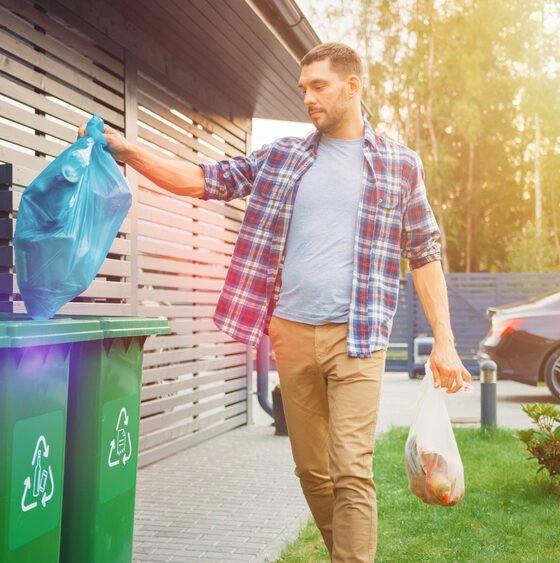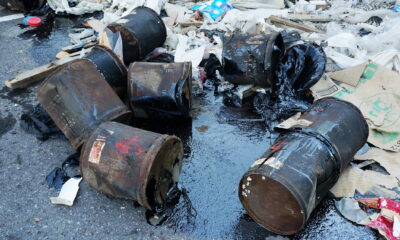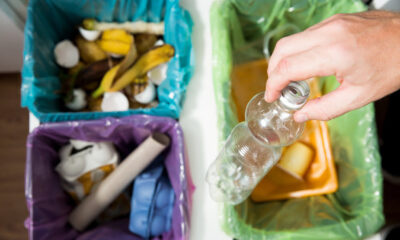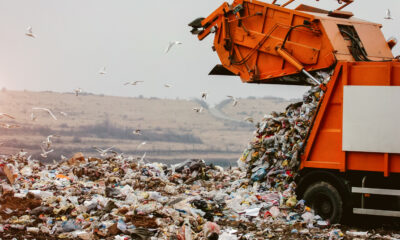

Environment
How To Plan For Residential Waste Management
Managing residential waste is more than a task; it’s a responsibility toward the environment and the community. For homeowners and renters alike, an efficient waste management plan is essential in ensuring that their household waste doesn’t contribute to pollution and waste-related problems.
The planning process isn’t overly complex. However, it does require some careful consideration and an understanding of the methods available for waste management.
Beyond dumpster rental, residential trash services, and other solutions, here are some effective ways to plan for residential waste management:
- Understanding Your Waste Profile
To design an effective waste management plan, you need to know what’s in your trash. Assessing your waste profile involves identifying the types and volumes of waste that your household generates. This crucial step also helps determine appropriate strategies.
To know more about your waste profile, consider the following key points:
- Household Trash: This includes non-recyclable items like certain types of plastic, soiled paper, and other items that can’t be composted or recycled.
- Recyclables: These are materials that can be reprocessed into new products. Common recyclables include plastic bottles, cardboard, glass jars, and metal cans.
- Organic Waste: This refers to any waste that comes from plants or animals and is biodegradable. Examples of organic waste include food scraps and yard waste.
- E-Waste: This is any discarded electronic equipment such as computers, smartphones, televisions, and appliances. E-waste can contain harmful materials and should not be disposed of with regular trash.
- Hazardous Waste: This refers to products that can be harmful to humans or the environment if not disposed of correctly. Pesticides, batteries, and cleaning products are some hazardous waste in your home.
While you can rely on residential trash services, learning about your waste profile can provide you valuable insights into your consumption habits. Plus, this can help you identify areas where waste reduction is possible.
- Setting Up A Waste Reduction Plan
Once you understand your household’s waste type, it’s time to reduce its volume. You might want to start by minimizing the use of disposable items and opting for reusable alternatives instead.
For instance, consider replacing disposable batteries with rechargeable ones or using cloth bags instead of plastic ones. It’s also essential to cut down on food waste by planning your meals, using leftovers, and composting organic waste.
By implementing these strategies, you can help minimize waste at your home and in landfills. As a result, you can make a positive impact on your local environment while keeping your property waste-free.
- Creating A Recycling System
Recycling is a key component of residential waste management. It diverts waste from landfills and conserves natural resources.
Your recycling system should segregate different types of recyclables, like paper, plastic, glass, and metal, into separate bins. But remember to clean recyclable items before disposal to prevent contamination.
However, recycling rules vary by location. Consult your city council or local waste management facility for your area’s specific guidelines. You should also ensure that all recyclable materials are properly sorted and prepared.
- Handling Hazardous And Special Waste
Every household generates hazardous waste, such as batteries, electronics, and certain cleaning products. Proper disposal of these items is essential to avoid causing harm to the environment and public health.
There may be special collection events or drop-off locations for hazardous waste in your community. Be sure to use these resources to dispose of such items responsibly.
- Establishing A Composting System
Organic waste—like vegetable peels, coffee grounds, and yard waste—comprises a large portion of household waste. These materials can be home-composted, reducing landfill waste and providing nutrient-rich soil for your garden.
Establishing a composting system could involve setting up a backyard bin and regularly adding organic materials. It’s a great way to manage waste and contribute to a healthier environment.
- Educating Household Members
Aside from proper disposal, education plays a vital role too. An effective waste management plan requires everyone’s involvement. Thus, educating all household members about waste reduction, recycling, and composting is important. Here are some ways to engage household members in these efforts:
- Teach By Example: Show your commitment to waste reduction by practicing it yourself. When others see you using reusable shopping bags, composting, and sorting recyclables, they’re more likely to follow suit.
- Create Fun And Educational Activities: For younger members, consider turning waste management into a game. This can be as simple as who can create the least amount of waste in a week or who can find the most creative way to reuse an item.
- Assign Roles And Responsibilities: Make each member responsible for a certain aspect of the waste management plan. This can involve chores such as managing the compost bin, taking out the recycling, or checking that products are environmentally friendly before purchase.
- Stay Informed and Share Information: Keep up-to-date with the latest news and developments in waste management and share this information with your family. This can help to reinforce the relevance and importance of your waste management efforts.
Cultivating a culture of waste consciousness ensures the success of your waste management plan. To achieve the best results, implement these methods correctly to help stop trashing the Earth.
Wrapping Up
Dealing with residential waste management doesn’t have to be a daunting task. Use this guide to create an effective plan. With some effort and dedication, you can help contribute to a cleaner, healthier environment.


 Environment12 months ago
Environment12 months agoAre Polymer Banknotes: an Eco-Friendly Trend or a Groundswell?

 Features11 months ago
Features11 months agoEco-Friendly Cryptocurrencies: Sustainable Investment Choices

 Features12 months ago
Features12 months agoEco-Friendly Crypto Traders Must Find the Right Exchange

 Energy11 months ago
Energy11 months agoThe Growing Role of Solar Panels in Ireland’s Energy Future





























